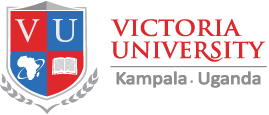Quick Facts
Credential
Postgraduate Diploma
Delivery Options:
Both On-Campus and Online - Some of your Classes will be in-person, on campus and some will be done online.
Duration: 1 year
With a typical full-time course load, this programme will take 1 year to complete.
Language of instruction
english
Admission Requirements
The programme is open to Ugandans and Non-Ugandans who fulfil the admission requirements. The requirements described below are only the minimum academic conditions for admission and only make one eligible for consideration. A candidate is eligible for admission if he/she possesses any of the following:
· A degree in any biological sciences from a recognized institution for example: Human medicine (MBChB), Nursing, Public Health, Human Nutrition and Dietetics, Food Science and Technology, Veterinary, Sports Sciences, Agriculture, and other medical and nutrition related bachelor’s courses.
An equivalent qualification from other institutions outside Uganda as may be determined.
Bank Details (Ugandans)
Admission fees UGX250,000
Bank: STANBIC BANK
USD Account: 9030020161085
Bank Details (Non-Ugandans)
Admission fees $87
Bank: STANBIC BANK
Account Number: 9030020161247
Swift Code: SBICUGKX
What you will Learn
LEARNING AND TEACHING STRATEGIES
Innovative teaching and learning methodologies will be used to promote active and life-long learning. All elements of the programme have specific learning objectives, with content designed to help students achieve these outcomes. Students are expected to learn through both directed and self-directed study.
Field work accounts for approximately 50% of the programme duration allowing students to do long distance learning. In this curriculum, the lecturers and facilitators shall use the following approaches:
· Student - centered learning, to promote full use of individual abilities
· Problem based learning using small group tutorials to develop critical thinking skill. It is a student-centered learning with tutor guidance.
· Lectures to provide guidance in scope and depth to broaden students understanding.
· Group discussions between students and lecturers to facilitate exchange of ideas.
· Seminars and practical exercises.
Career Opportunities
A post-graduate diploma in Nutrition and Leadership can open up a variety of career opportunities in the fields of nutrition, healthcare, management, and leadership. Here are some potential career paths you can pursue with this qualification:
Clinical Nutritionist/Dietitian: Work in hospitals, clinics, or private practice to assess and provide dietary guidance to patients with specific health conditions or dietary needs.
Corporate Wellness Program Manager: Oversee workplace wellness programs, promoting healthy lifestyles and nutrition choices among employees to improve overall health and productivity.
Public Health Nutritionist: Collaborate with government agencies or non-profit organizations to develop and implement nutrition programs and policies to address community health concerns.
Nutrition Educator: Teach nutrition and health-related courses at colleges, universities, or community education programs to educate the public about healthy eating habits.
Nutrition Consultant: Provide specialized nutrition advice to individuals, sports teams, or organizations seeking to optimize their nutrition strategies.
Healthcare Administrator: Use your leadership skills to manage healthcare facilities or departments, ensuring the efficient delivery of healthcare services, including nutrition programs.
Clinical Researcher: Conduct research on nutrition-related topics, including clinical trials and studies aimed at improving our understanding of nutrition's impact on health.
Food Service Manager: Oversee the food service operations in hospitals, schools, restaurants, or other institutions, ensuring that meals meet nutritional standards and regulations.
Sports Nutritionist: Work with athletes and sports teams to develop nutrition plans that enhance performance, aid in recovery, and reduce the risk of injury.
Community Nutrition Coordinator: Develop and manage community-based nutrition programs, such as those aimed at combating food insecurity or promoting healthy eating habits in underserved populations.
Health and Wellness Coach: Guide individuals or groups in making positive lifestyle changes, including nutrition choices, to improve their overall well-being.
Leadership and Management Roles: Your leadership component of the diploma can prepare you for various managerial positions in healthcare organizations, non-profits, or the nutrition industry.
Entrepreneurship: Start your own nutrition consultancy, wellness center, or nutrition-focused business.
Nutrition Writer/Blogger: Combine your expertise in nutrition and leadership to write articles, blogs, or books on nutrition, health, and personal development.
Nutrition Policy Analyst: Analyze and contribute to the development of nutrition policies at the local, state, or national level.
Your choice of career will depend on your interests, specialization within nutrition, and leadership skills. Networking, internships, and further education (such as a master's degree or certifications) can also enhance your career prospects in these fields.
Tuition & Fees
The tuition and fee amounts are estimates based on current academic year's rates. For financial planning purposes, please use these totals as an approximate estimate of your costs. Actual fees may vary by term and enrolment activities.
Download
